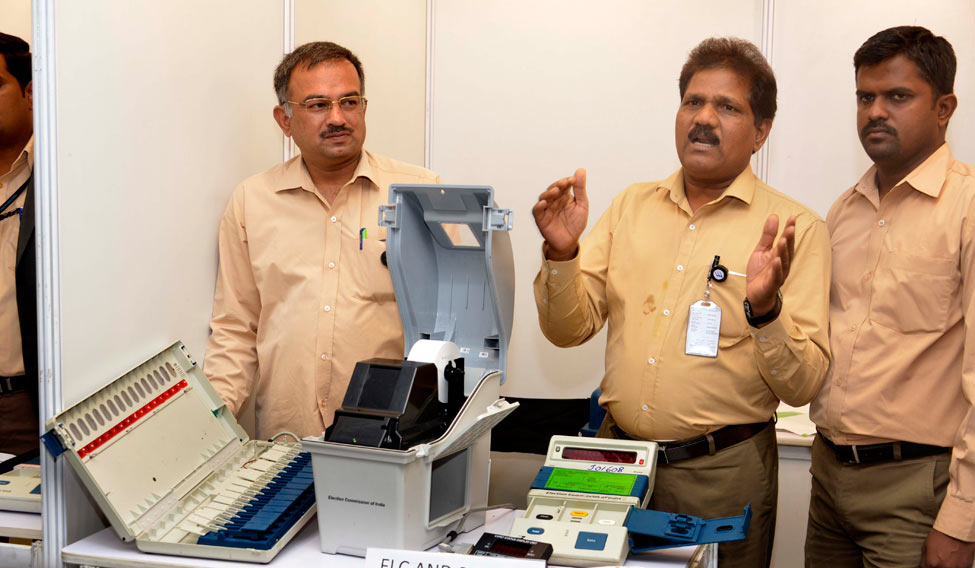With several political parties alleging that the electronic voting machines were tempered with during the last assembly elections, the Election Commission of India has thrown open a challenge for parties to prove their charges. The parties have been given time till May 26 to register for the challenge and prove their allegations on EVMs of their choice on June 3.
Following up on the meeting with the political parties on May 12, the commission came out with detailed presentation showing how the EVMs manufactured by the two state run companies—BEL and ECIL—cannot be tempered with. The entire election commission held a presentation of the EVMs before the media and even held a press conference to put across its point.
Over the last 20 years, the election commission has conducted 107 state assembly elections, and three Lok Sabha elections using the EVMs. Since 2013, voter-verified paper audit trail (VVPAT) machines have also been used,” Chief Election Commissioner Nasim Zaidi said.
We have placed orders for new VVPAT machines. The companies will start manufacturing by August 2017 and submit all the machines by September 2018, so that next Lok Sabha elections will be held using these VVPAT machines, Zaidi said adding that all political parties have agreed to it.
Without commenting on the hacking of EVM shown in the Delhi Assembly by an Aam Admi Party MLA, Zaidi said the challenge will lay to rest all the doubts over the effectiveness of the machines.
“Certain political parties had cast aspersions on the credibility and integrity of EVMs that were used in the recently held General Assembly Elections of five states namely Punjab, Goa, Manipur, Uttarakhand and Uttar Pradesh in February-March 2017. Election Commission sought evidence from the complainants. No evidence has been received by the Commission,” Zaidi claimed.
The EC received over 100 complaints. Though each of the individual complainants were asked to submit the proof, none of them has done it so far, the CEC said.
Under its challenge, Election Commission invited the nominees of national and state political parties, who contested recently held assembly elections of five states have been asked to demonstrate their allegations. Each party can nominate 3 persons only to participate in the EVM Challenge.
There are two components of the challenge.
In Challenge I, the claimants will get a chance to alter the results in the control units used during the polls in exactly the same scenario as the EVMs remain in within the technical and administrative safeguards of the ECI. They would be given a chance to use wireless, bluetooth, mobile phone to affect change.
In Challenge II, the parties will be allowed to inspect the machines by opening them and even a fresh sample poll can be conducted on the selected EVMs.
However, the EC made it clear that machines will not be handed over to the parties so that they can tamper with the mother board or the chip of the machine. “Such a technological change will render the machine different from the one which is with us,” Zaidi said.
Zaidi made it clear that the purpose of the exercise was not to win or lose, but to clear doubts.




